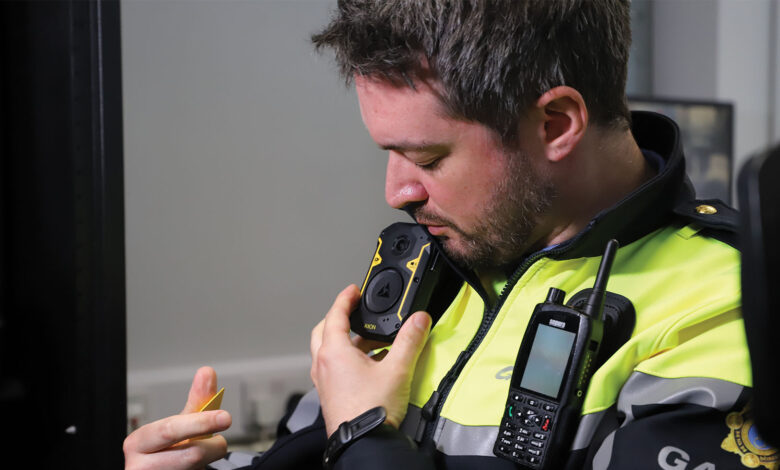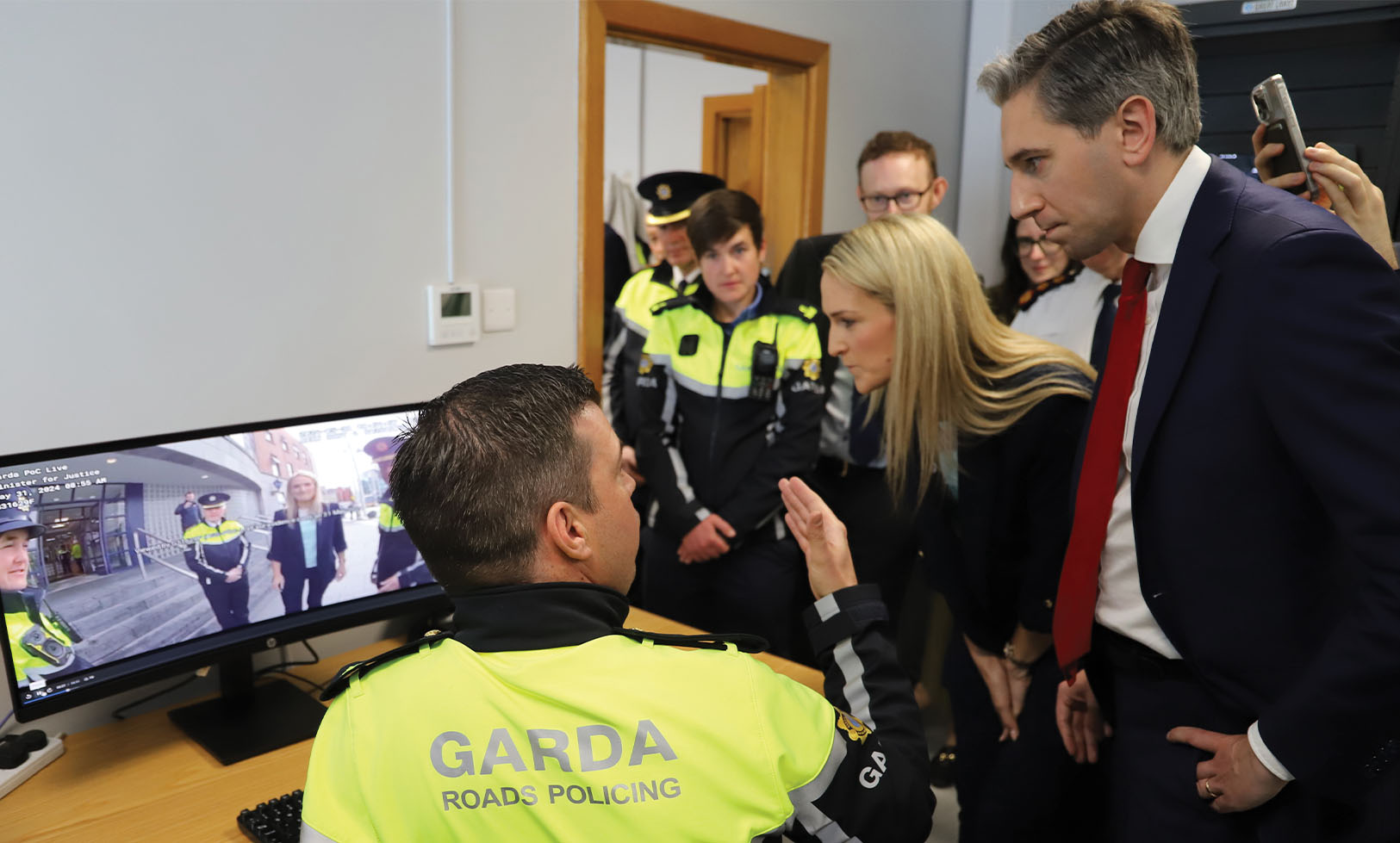An Garda Síochána trials body-worn cameras

An Garda Síochána has commenced a pilot phase of body-worn cameras for frontline members.
On 31 May 2024, An Garda Síochána launched the first phase of its proof of concept for body-worn cameras as well as the supporting Digital Evidence Management System (DEMS).
Each body-worn camera has the capacity to record footage to its own internal encrypted storage, which will be uploaded when the garda docks the camera in a Garda station. Body-worn camera footage is uploaded at the end of a shift with the objective of ensuring that it can either be used as evidence at court or is deleted after an agreed time period if it is not required as evidence.
As recommended in the Commission on the Future of Policing in Ireland report: “Modern policing organisations around the world have found that body cameras can help to improve front line capability with the accurate recording of incidents, expedite analysis, enhance situational awareness, and sometimes protect police from harm.”
The Garda Síochána (Recording Devices) Act 2023 was signed into law on 5 December 2023. Subsequently, the Garda Síochána (Recording Devices) Act 2023 (Code of Practice) Order 2024 was signed by the Minister for Justice. An Garda Síochána has since been working to introduce body-worn cameras for members in accordance with this Code of Practice.
An Garda Síochána is undertaking three phased introductions as part of its proof of concepts stage. Each phase involves the use of a range of body-worn cameras by frontline gardaí in specific locations throughout the State.
The three proof of concept phases are designed to test the technical aspects of each camera, how they will be used operationally in addition to the training, Code of Practice, and governance of their use.
Phase one of these three phased introductions has now commenced in Dublin. There are currently 100 frontline Gardaí working at Pearse Street Garda Station, Kevin Street Garda Station, and Store Street Garda Station respectively who are fully trained in the use of body-worn cameras, and the cameras are now both visible on their uniforms and in use while on-duty.
It is anticipated that by the end of June 2024, between 350 and 400 frontline gardaí in Dublin will be fully trained and have the cameras in use.
An Garda Síochána states that it continues to engage with stakeholders and the communities it serves as it develops its Codes of Practice and in advance of the full deployment of body-worn Cameras.
At the launch, Garda Commissioner Drew Harris said: “From today [31 May 2024], gardaí in three Dublin stations – Store Street, Pearse Street and Kevin Street – will begin using
body-worn cameras, with two other stations in Limerick and Waterford cities to follow in the coming months.
“The ability of An Garda Síochána to securely acquire and process digital evidence is a key feature of modern policing.”
He said that the launch of a proof of concept for body-worn cameras and the supporting digital evidence management system (DEMS) is “an important milestone for An Garda Síochána towards the implementation of information-led policing”.

“Body-worn cameras, supported by the underlying legislation, technology and training will act as an important evidentiary tool. International experience has also shown that body-worn cameras will increase safety for gardaí and the public. Now through this proof of concept we will be able to refine our systems and processes for body-worn cameras based on experience and feedback.”
The Garda Commissioner Harris was joined at the launch at Store Street Garda Station by the Taoiseach, Simon Harris TD, and the Minister for Justice, Helen McEntee TD.
The Taoiseach said: “Body-worn cameras are vital to protecting gardaí on the beat as they experience an increase of attacks which will not be tolerated.
“Too often, gardaí find themselves in situations where they are being recorded in tense situations with footage often edited to suit a particular narrative. This technology will offer protection both to gardaí and to the public with accurate recording of incidents.”
The pilot roll-out of body-worn cameras is a first step which, it is hoped, will continue later this year in Limerick and Waterford. When complete, the three-phased pilot will inform their introduction in garda stations nationwide.





